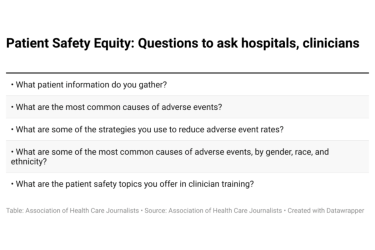 Oral health advocates are closely watching Capitol Hill.
Oral health advocates are closely watching Capitol Hill.
Many are worried about the future of children’s dental benefits under proposed Republican plans to repeal or replace the Patient Protection and Affordable Care Act (ACA).
Pediatric dental benefits were among the essential health benefits (EHBs) mandated for inclusion in private insurance packages sold on state insurance exchanges under Obamacare. Millions of children also became entitled to public dental coverage through Medicaid expansion under the ACA. President Barack Obama also added a guaranteed dental benefit for children of the working poor to the Children’s Health Insurance Program (CHIP).
Such measures have contributed to “sharp declines in the rate of uninsured children,” noted policy analyst Deborah Vishnevsky in a post at the Children’s Dental Health Project’s Teeth Matter blog.
But under some ACA repeal-and-replace proposals, these gains may be short-lived, Vishnevsky concluded.
For example, the Patient Freedom Act co-sponsored by Sen. Bill Cassidy of Louisiana and Sen. Susan Collins of Maine offers states three options to continue to provide health care coverage.
“The three options in the Patient Freedom Act provide no guidance on what should be included in children’s coverage, meaning that in at least two of these options, dental coverage wouldn’t necessarily have to be offered,” Vishnevsky wrote. An alternative bill supported by Sen. Rand Paul of Kentucky similarly failed to address dental benefits.
“All in all, these bills provide families with few protections for affordable dental coverage,” Vishnevsky warned.
While the ACA did not adequately address adult dental coverage, adults also have gained some access to dental care and benefits under health care reform. The ACA contains provisions to increase the availability of dental services at federal safety net clinics and made dental benefits available to young adults who remain on their parents’ plans until the age 26.
While the ACA did not mandate adult dental benefits, they have been available through many state insurance exchanges. Some adults also gained at least limited dental benefits under state Medicaid expansions. As with children’s access, the future of that access remains unknown.
In a recent DrBicuspid.com story by Theresa Pablos, an expert panel mulled the possible shape of oral health policy under the leadership of President Donald Trump and congressional Republicans.
“When asked what might change under the new administration, the panelists stressed that no one knows and there has not been talk about specifically targeting oral health,” Pablos wrote.
“However there was concern that the new Congress may repeal the essential health benefits component of the ACA, allowing states to decide whether dental benefits should be part of pediatric health care and that a major overhaul of Medicaid may leave low-income children and adults without access to dental care,” Pablos summarized in her story.
“’The questions are just how flexible (state autonomy) will be, and what will happen to dental benefits,” panelist Burton Edelstein, a professor of dental medicine at Columbia University, was quoted as saying. “On both the coverage side and the structural side of the ACA, there are many, many, many more questions than answers.”
Beyond the ACA and Medicaid, there are additional questions. Oral health advocates wonder what might become of:
- An evolving push to add dental benefits to Medicare;
- Where the Trump Administration might stand on community water fluoridation; and
- Whether the Children’s Health Insurance Program (CHIP) has a future.
Before confirmation hearings for Tom Price as secretary of the U.S Department of Health and Human Services, the nonprofit group Oral Health America provided a list of suggested questions to senators considering Price’s nomination.
When the hearings were over, most of those questions remained unanswered, although a few oral health-related topics were discussed, according to Andrew Kaffes, who emailed a summary on behalf of Oral Health America.
Sen. Sherrod Brown, an Ohio Democrat, asked Price if he agreed with a recent recommendation from the Medicaid and CHIP Payment Access Commission that Congress extend the life of CHIP for five more years. Kaffes wrote:
Dr. Price replied, “I think the CHIP program, with policymakers, has to be looked at, and I believe it ought to be extended.” Brown followed up, “For five years?” Price replied, “Well, if we could extend it by eight, it would probably be better than five.”
Another Democrat at the hearing, Sen. Ben Cardin of Maryland, asked Price for assurances that the ACA’s essential health benefits – including pediatric dental benefits – would be preserved in the future.
“Price answered broadly he wants to ensure the program works for patients, wanting to make sure that coverage equals care,” Kaffes recounted.









